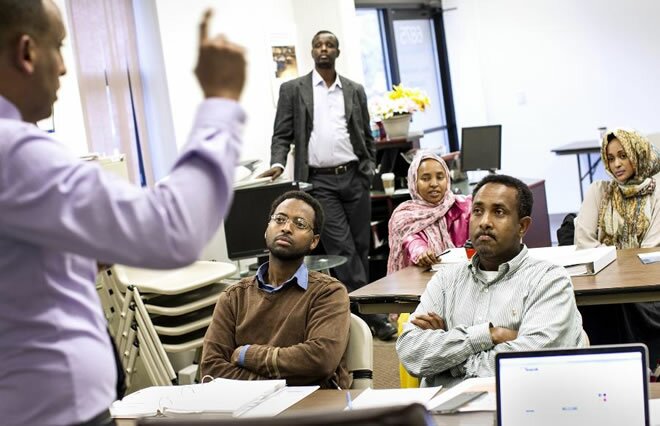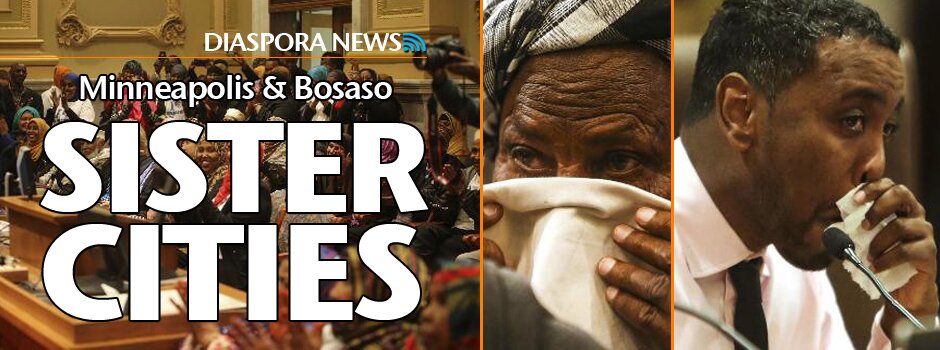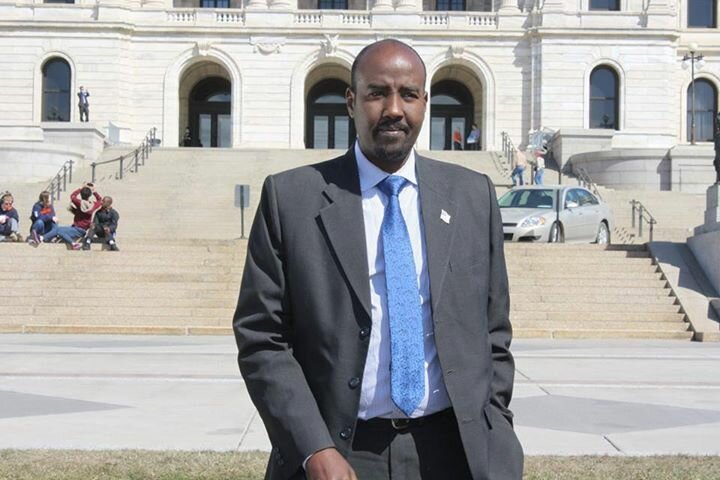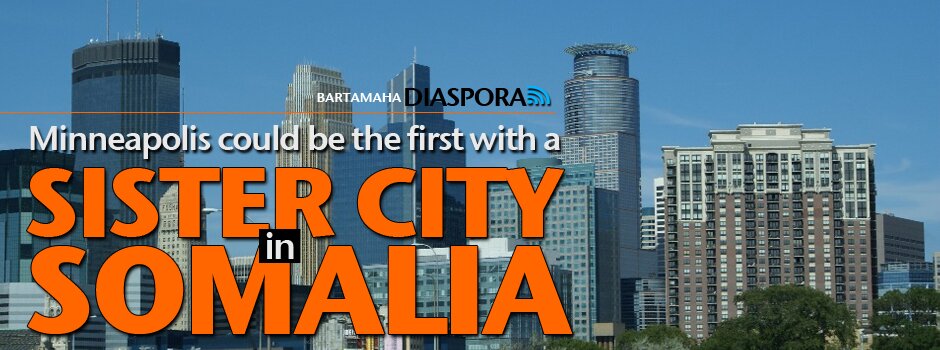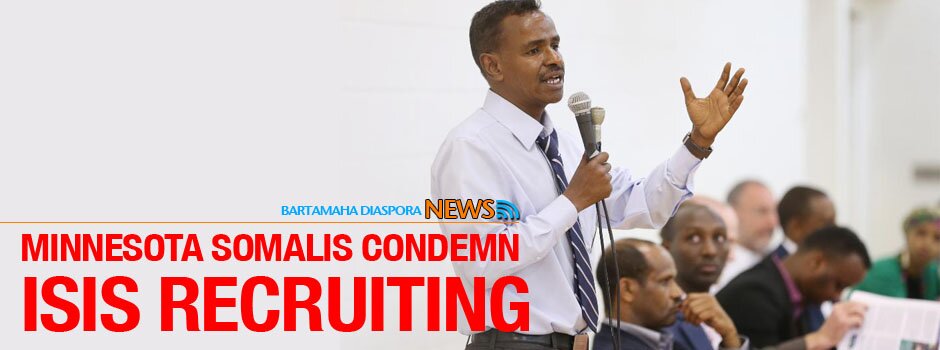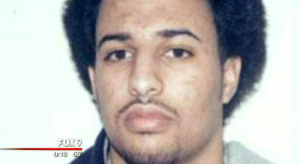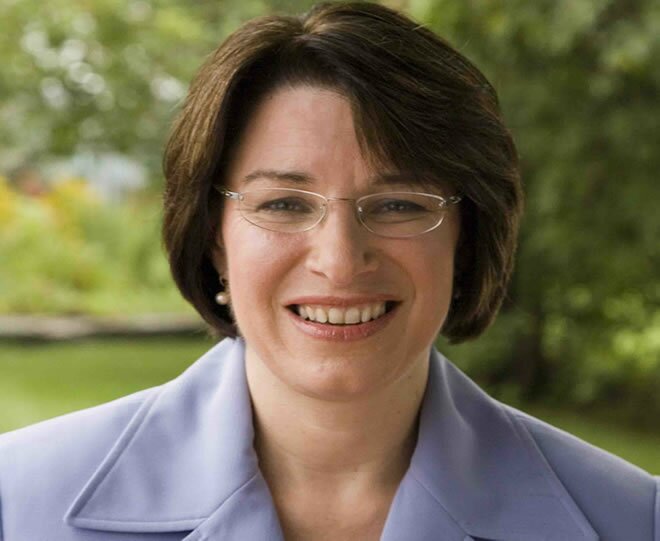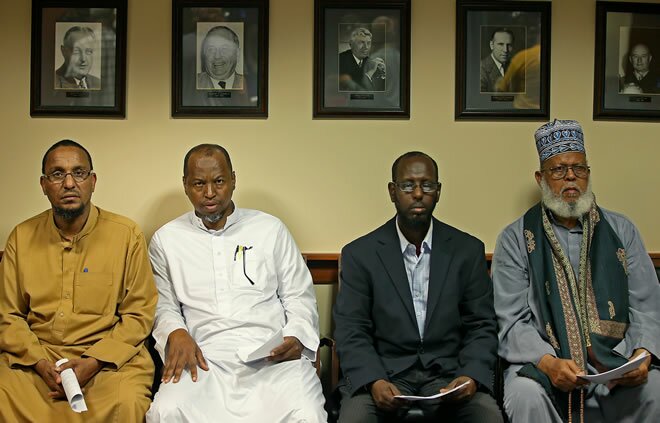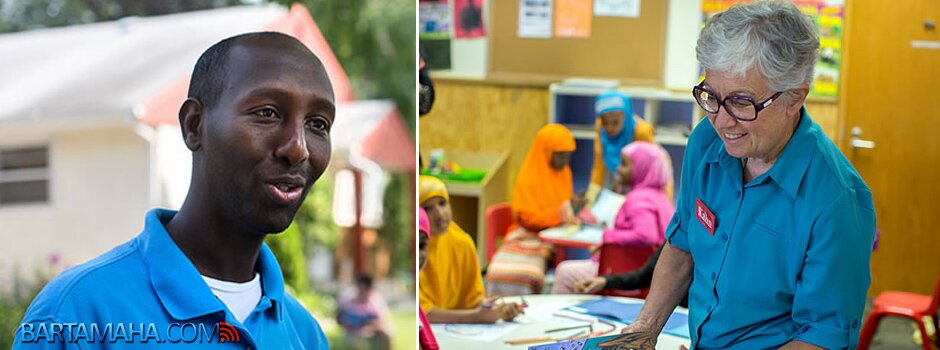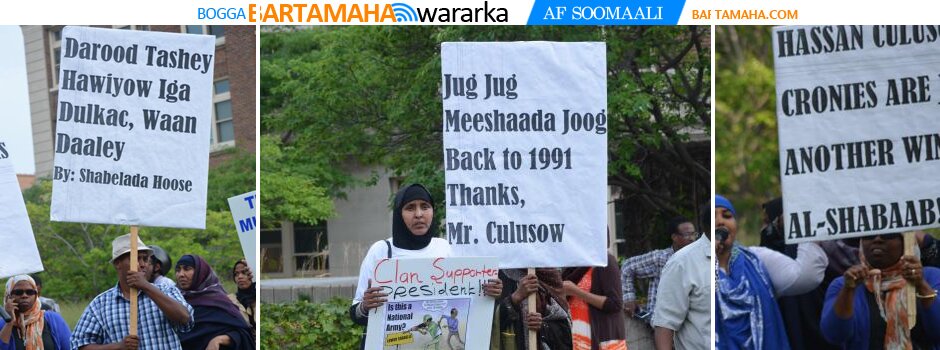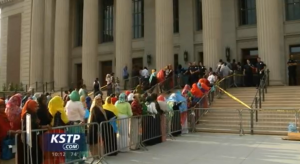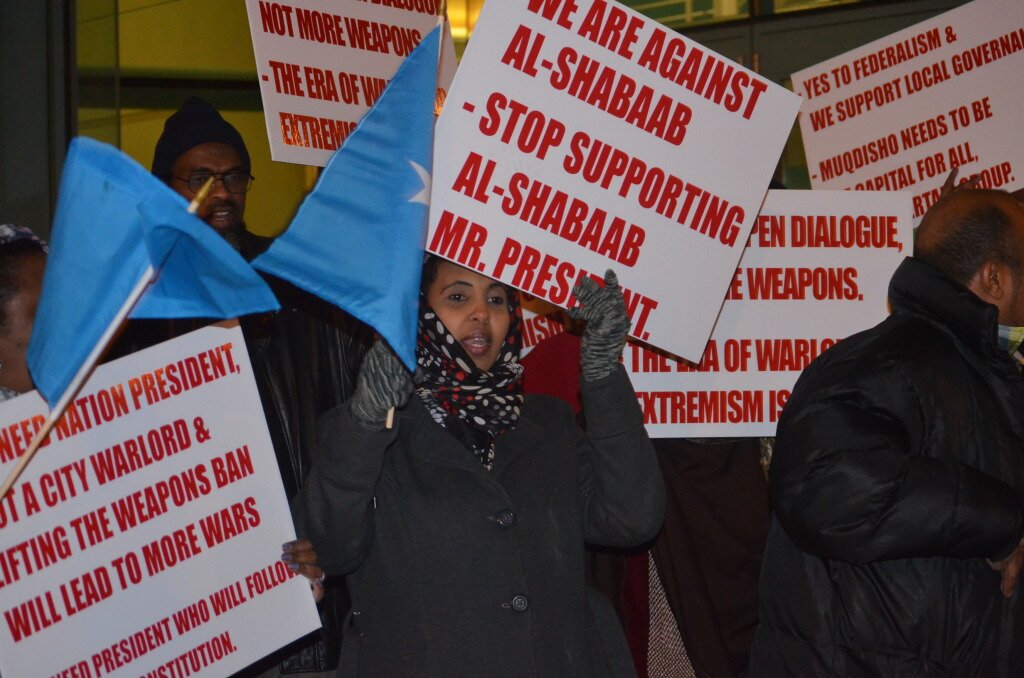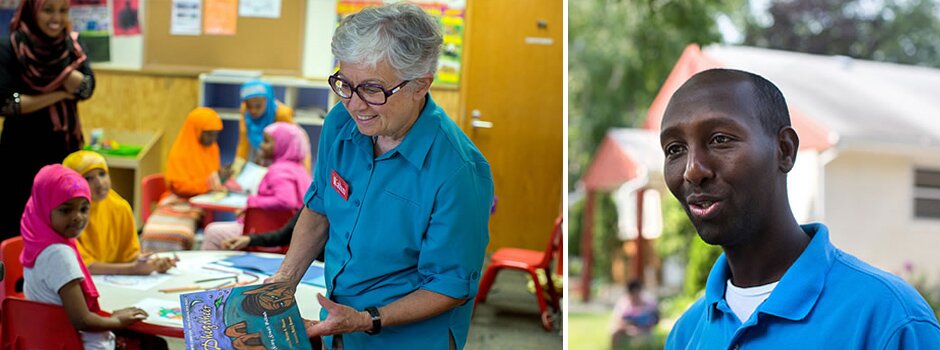Puntland delegation visits Minnesota diaspora
 With the backdrop of Somali president Sheik Sharif Sheik Ahmed’s speech to nearly 4,000 people at the University of Minnesota in September, three ministers from the government of the semi-autonomous region of Puntland in northeast Somalia arrived in Minnesota for a week in October to address local politicians and members of the Somali Diaspora about the state of Puntland and its relationship with the rest of Somalia. Several speakers, including Puntland State Ministers Asha Gelle Dirie, Ahmed Elmi Osman, and Dr. Abdi Hassan Jimaale, as well as several prominent academics, members of the UN, and members of the Minnesota and U.S. legislatures, spoke to more than a thousand people in meetings at the Minneapolis Ramada Plaza October 8-10.
With the backdrop of Somali president Sheik Sharif Sheik Ahmed’s speech to nearly 4,000 people at the University of Minnesota in September, three ministers from the government of the semi-autonomous region of Puntland in northeast Somalia arrived in Minnesota for a week in October to address local politicians and members of the Somali Diaspora about the state of Puntland and its relationship with the rest of Somalia. Several speakers, including Puntland State Ministers Asha Gelle Dirie, Ahmed Elmi Osman, and Dr. Abdi Hassan Jimaale, as well as several prominent academics, members of the UN, and members of the Minnesota and U.S. legislatures, spoke to more than a thousand people in meetings at the Minneapolis Ramada Plaza October 8-10.
President Sheik Sharif Sheik Ahmed and the ministers from Puntland have a good reason to curry favor with Minnesotans; the largest population of the Somali Diaspora calls Minnesota home. Recent census estimates put the current population of Somali immigrants at 30,000 in the Twin Cities alone, however that number could be as high as 70,000.
Speaking from his office in the Cedar/Riverside neighborhood of Minneapolis, Ali Warsame, a Somali activist from Minneapolis, said that he was one of the first Somali immigrants to arrive in Minnesota in 1994. He arrived first in California, but became disillusioned with the poor job market there. When a friend said that he had found work at a chicken processing plant in Marshall, MN, Warsame made the trip north. He opted for the Twin Cities instead of Marshall, and quickly found a job as a parking lot attendant.
At the time there was only a handful of families in Minneapolis and everyone became very close. Minnesota’s supportive reputation paved the way for a peak in Somali immigration to the state by the end of the 1990s. Within five years, many immigrants applied for and were granted citizenship, thus becoming eligible to vote.
The ministers who visited in October were invited by the Puntland Diaspora Forum, an organization of over 1500 members, which includes members from Minnesota and the world who seek to find ways to extend the stability created in Puntland to Somalia as a whole. Ali Warsame is on the executive board of the Puntland Diaspora Forum. He states that Puntland’s stability and autonomy is threatened by the situation in south-central Somalia, where the transitional government is based. The militant group Al-Shabab, which the U.S. believes has ties to Al-Qaeda, has free reign over most of the south.
Puntland has been free of this threat partially due to the establishment of its own military and police force, albeit in need of improvement. “They are trying their best to have a military that is capable, but at this point it is ill-equipped,” says Warsame. This is where support and respect from the outside world is imperative if Somalia is to bounce back from the brink of lawlessness.
Economic advantages in the region abound as well. Puntland has a large coastline which has always provided opportunities for a fishing industry. But when the government collapsed, so did the country’s ability to protect its waters from illegal fishing and dumping by other countries.
According to Somali activist Abdi Fatah Abdi Nur, who is based in Rochester, illegal fishermen from outside Somalia have taken advantage of Somalia’s lawlessness and moved into waters that have traditionally been under the jurisdiction of Somalia. “These illegal fisherman have been shooting at the Somali fishermen,” Abdi says. In order to protect themselves, they get their own guns. The situation has escalated to the point of piracy. Now the waters by Somalia are patrolled by international gunships. Abdi points out that if international law had been observed and Somalia’s jurisdiction respected, the problem with pirates could have been avoided. He says that what Puntland needs is support from the international community through funding for job training and education, or else piracy and terrorism will simply spread to the stable regions as well.
According to Abdi, the international community needs to focus on how the successes of Puntland can be applied to improving the situation in the south. He points out the parallels between Somalia and Afghanistan and how we can learn from mistakes made in Afghanistan.
“So much money is spent and so many lives are lost in Afghanistan,” he said. “After the Soviets left, the United States abandoned Afghanistan, then 9-11 happened.” He said that we are at a critical time where if we help the parts of the country that are working become stronger, the country as a whole can heal. Abdi said that the time to act is now. “If we just sit back and wait, the entire country will fall to extremists.”
Both Puntland and the Transitional Government in Mogadishu have received verbal support from U.S. lawmakers, including Senators Al Franken and Amy Klobuchar. But how the U.S. government fiscally supports Somalia as a whole can be a sticky situation. Funds that go towards Somalia go through the Transitional Government in Mogadishu. According to Abul Kadir Abdi Hashi, president of the Puntland Diaspora Forum, the foreign aid is not being distributed to Puntland. Abdi Hashi was a former ambassador to the U.K. and Canada under the Siad Barre administration in the 1980s. He was also the foreign press advisor in 2008 under the previous Somali president, Yusuf Ahmed.
It’s no coincidence that Republicans have been absent from both the recent Somali and Puntland conferences. Warsame says that while he and others in the Somali Diaspora previously supported George W. Bush and Norm Coleman’s pro business policies (“Many Somali Americans are business owners,” explains Warsame), they have seen the Republican Party drift away from supporting programs like job training, English as a Second Language and health care that help get Somali immigrants on their feet. Democrats have renewed this commitment, he says. When Al Franken ran for senate, he campaigned in mosques and at the homes of Somali immigrants. The first ethnic group Amy Klobuchar addressed after her election was the Somali Diaspora.
Warsame makes clear that a political party has to earn someone’s vote and not take a certain population for granted. Warsame says that the exposure to American style democracy has undoubtedly influenced how the Somali government should conduct business; particularly in the realm of transparency and equal representation for all. He says that this is not currently happening. However the Somali government is dependent on funds from U.S. policy makers, who are increasingly listening to Somali constituents.
Comments
comments
 Calendar
Calendar










